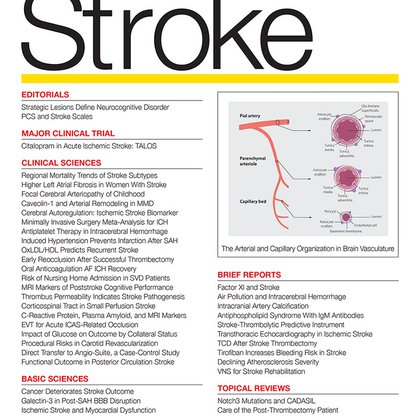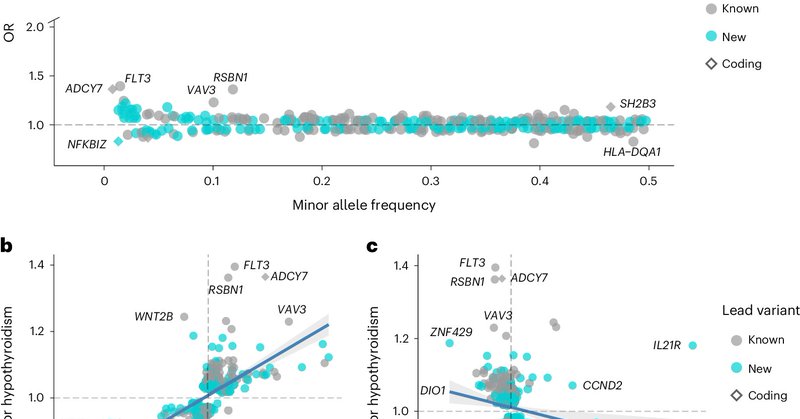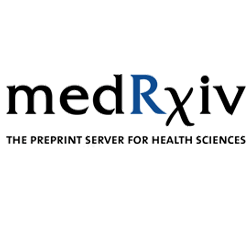
Marios Georgakis
@MariosGeorgakis
Followers
5K
Following
3K
Media
2K
Statuses
3K
Physician-scientist leading a lab @LMU_Muenchen, visiting scientist @broadinstitute | Writing about genetics, omics, deep phenotyping
Munich,Germany
Joined August 2018
In our new preprint, we present the largest genomic exploration of arterial aging to date, leveraging photoplethysmography (PPG)–derived pulse waveforms from 115,000 UK Biobank participants. Our results provide insights into potential strategies to mitigate arterial aging👇
1
9
42
In the evoke and evoke+ trials of 3808 patients aged 55-85, suffering from mild cognitive impairment or mild dementia due to Alzheimer’s disease, oral semaglutide did not result in reduction of disease progression measured by CDR-SB over 2 years. In secondary outcomes, oral
0
0
5
Small vessel disease might be the most underappreciated brain disease in medicine. Every doctor knows the scenario: radiology report mentions it, we note it, then… nothing. Probably the most overlooked modifiable risk factor for cognitive decline.
pQTL resources can be very useful for downstream analyses. For example, a proteome-wide (plasma & CSF) Mendelian randomization exploration of MRI markers of cerebral small vessel disease detected 49 significant proteins pointing to new biology and potential druggable targets.
1
1
13
Congratulations to the investigators for a successfully conducted massive trial. Human genetics has been integral in reviving cardiovascular drug development.
0
0
0
This is another win for human genetics, which supported an association of genetically proxied factor XIa inhibition with lower ischemic stroke risk but not with intracerebral hemorrhage (forest plot from our 2018 paper)
We are absolutely thrilled to share that the OCEANIC-STROKE trial has successfully met its primary efficacy & safety endpoints. These landmark findings have the potential to prevent >1M strokes annually worldwide... https://t.co/UGog7piZ7A
@mike_sharma2 @PHRIresearch
1
1
16
🔗link to the announcement: https://t.co/ChbpEhIbsV 🔗link to our genetic study from 2018:
ahajournals.org
Background and Purpose— FXI (factor XI) is involved in thrombus propagation and stabilization. It is unknown whether lower FXI levels have a protective effect on risk of ischemic stroke (IS) or...
0
0
1
This is the first successfully completed phase 3 study of a factor XI inhibitor and another win for human genetic studies, which supported significant effects of genetically proxied FXIa inhibition on ischemic stroke risk, with no effects on intracranial bleeding.
1
1
2
Bayer announced positive topline results for the phase 3 OCEANIC-STROKE trial testing the oral FXIa inhibitor asundexian vs. placebo in 12,300 non-cardioembolic stroke/high-risk TIA patients on top of antiplatelets 👉lower recurrent stroke risk 👉no increase in major bleeding
2
2
7
Cerebral small vessel disease is a major, overlooked market opportunity for drug development, especially amid the longevity hype. It affects nearly every elderly individual, is associated with risk of stroke, dementia, and death, and we have no disease-modifying therapies.
1
1
1
pQTL resources can be very useful for downstream analyses. For example, a proteome-wide (plasma & CSF) Mendelian randomization exploration of MRI markers of cerebral small vessel disease detected 49 significant proteins pointing to new biology and potential druggable targets.
1
4
12
As disclosure of evoke and evoke+ trial results for oral semaglutide in people with imaging or biomarker+ #Alzheimers disease approaches, a reminder of the primary and secondary endpoints https://t.co/dPQL8Iaksf
7
18
73
A worth-reading analysis of @nucleusgenomics, one of the companies offering polygenic embryo selection for IVF. Their whitepapers are full of scientific inaccuracies and their marketing strategy sickeningly inflates what they claim to offer.
I've just written a new post raising a series of concerns about Nucleus Genomics, a company that offers embryo selection services based on polygenic scores for couples undergoing IVF. I was shocked by the degree to which Nucleus's work is obviously plagiarized or simply wrong.
5
24
225
I wrote a little bit about the "missing heritability" question and several recent studies that have brought it to a close. A short 🧵
11
98
477
🔗link to study: https://t.co/Q9ijcR2TdL 📊summ stats @GWASCatalog under accession IDs: 👉GCST90572791 ( https://t.co/f8T0f144uG) 👉GCST90572789 ( https://t.co/4itrfD9afv) 👉GCST90572790 ( https://t.co/AMmVcmvzV3)
nature.com
Nature Genetics - Large-scale genome-wide analyses identify hundreds of genetic loci associated with hypothyroidism and thyroid hormone levels, demonstrating the potential of using polygenic risk...
0
0
4
Kudos to authors for testing PRS utility in the clinically relevant scenario of subclinical hypothyroidisim. The curves separate well, but the frontload of cases is worrying. These might not have been real cases of subclinical hypothyroidism, but real hypothyroidism cases
1
0
4
The PRS discrimination statistics are really good compared to other complex disease traits. A ΔAUC of 8% isn't common and the effects in the extremes of the distribution are potentially clinically meaningful.
1
0
1
Updated GWAS resource for hypothyroidism (113,393 cases & 1,065,268 controls), fT4 (N=191,449) and TSH (N=482,873) 👉350 loci 👉heritability 14.5% 👉a PRS performed very well improving AUC by 8% 👉PRS top 1%->OR =7, top 0.1%->OR=14
2
3
16
Now UK Biobank offers Nightingale metabolomics (250 metabolites) for the whole cohort (N=500,000), including 20,000 repeat measurements. Looking back in a few years, I think UKB will stand out as the initiative that taught us the importance of scale for biological discoveries.
5
18
98
Amazing work by Lingling Xu and the rest of the team! 🔗link to our preprint:
medrxiv.org
Arterial aging, marked by progressive vascular stiffening, is a contributor to cardiovascular disease. Photoplethysmography (PPG) waveforms offer an easily accessible signal of arterial function,...
0
0
3
Rare variant burden testing further implicated damaging variants in COL21A1, LMNA, TP53BP2, RXRB, and FLOT2, also converging on extracellular matrix remodeling and fibrosis-related pathways.
1
0
1








